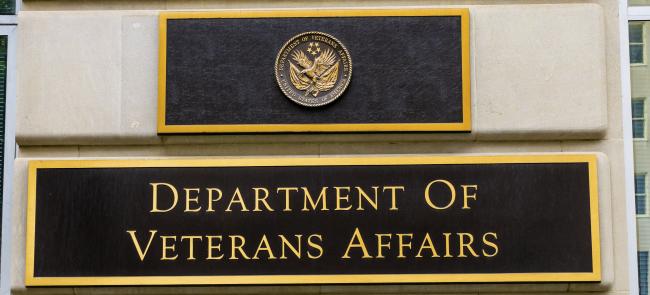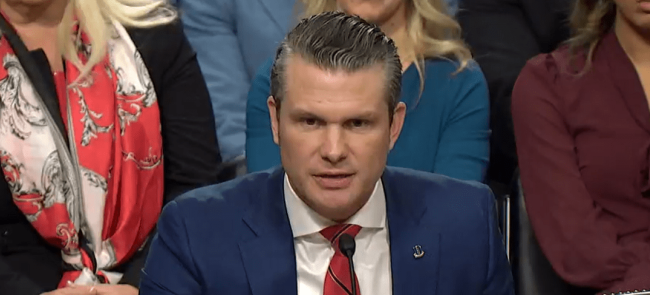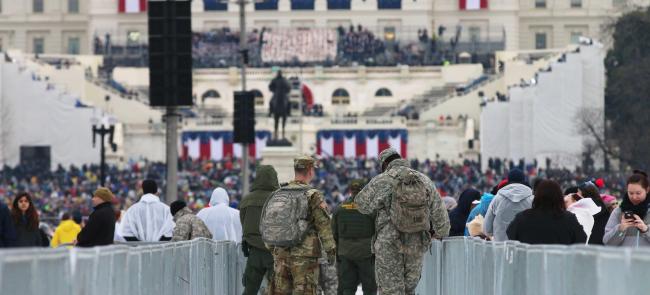
A bipartisan group of senators has reintroduced legislation that would create a Space National Guard.
Sen. Dianne Feinstein, D-Calif., and Sen. Marco Rubio, R-Fla., introduced the Space National Guard Establishment Act last week.
The legislation is co-sponsored by Sen. Lisa Murkowski, R-Alaska, Sen. Kyrsten Sinema, I-Ariz., Sen. Alex Padilla, D-Calif., Sen. Michael Bennet, D-Colo., Sen. John Hickenlooper, D-Colo., Sen. Rick Scott, R-Fla., Sen. Mike Braun, R-Ind., and Sen. Marsha Blackburn, R-Tenn.
Rep. Jason Crow, D-Colo., plans on introducing “companion legislation” in the House, according to a press release from Feinstein’s office.
If passed, the bill would move the approximately 1,000 space professionals in 16 Air National Guard units across eight states and territories to a new component under the U.S. Space Force.
These Guardsmen currently provide 60% of the military’s space electronic warfare capability, the only mobile, survivable missile-warning capability and 100% of the surge capacity.
But the Guard's space professionals are currently orphaned under the Air Force, “which no longer has responsibility for the space mission,” Feinstein said in the press release.
“They should serve under the Space Force with the rest of our space units and fix the organizational disconnect that is undermining their training, resourcing and recruiting," she continued.
“A Space Force National Guard would save money because otherwise we will eventually have to replace the capabilities we have in the Guard today with new units created from scratch inside the Space Force," Feinstein added.
"Creating a Space National Guard would boost our military readiness and increase efficiency," Rubio noted.
"It would also ensure that the Space Force retains needed talent," he concluded. "I look forward to working with my colleagues to pass this commonsense bill.”
Lawmakers considered similar legislation in the 117th Congress; the bill passed the House but never came to a vote in the Senate.
“Creating a new military component is not something Congress does quickly, especially without the blessing of Pentagon policy-makers,” said retired Brig. Gen. J. Roy Robinson, the NGAUS president.
“That’s why it’s so heartening to see that a broad coalition of senators shares our determination to establish a Space National Guard," he said.
“A Space National Guard is the only efficient, inexpensive way to enhance our Space Force,” he added. "It requires no new personnel, equipment or facilities — just new uniform name tapes and some new signs.”
The National Guard Bureau estimates that the one-time price of creating a Space National Guard is about $250,000.
But cost continues to be a sticking point in the effort.
A 2020 Congressional Budget Office report incorrectly assumed every state and territory would have units in a Space National Guard that could total as many as 5,800 personnel.
The CBO estimated annual costs at nearly $500 million, a figure often cited by congressional opponents and the White House Office of Management and Budget.
“The CBO totals are based on false assumptions developed without any National Guard input," Robinson said.
“The Guard has never advocated a 54-state-and-territory Space National Guard," he charged. "A Space Guard could grow beyond 1,000 personnel. But any expansion would be up to Space Force leaders."
Robinson said that NGAUS will keep educating lawmakers and the White House about the real costs of a Space National Guard and the high price of leaving Guard space professionals out of the Space Force.
“Nearly half of the Guard’s part-time space professionals work full time in civilian aerospace or other high-tech industries," he said.
"These are talented, coveted people with valuable connections to industry,” he finished. "Without a Space National Guard, the nation is going to lose them."
— By John Goheen












